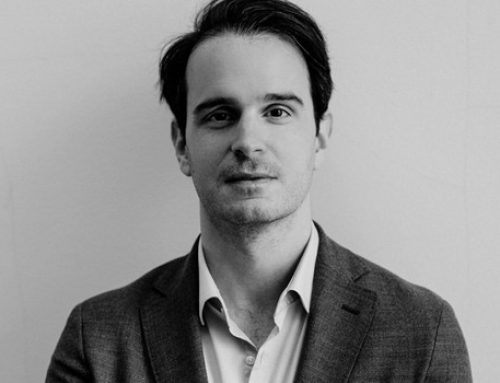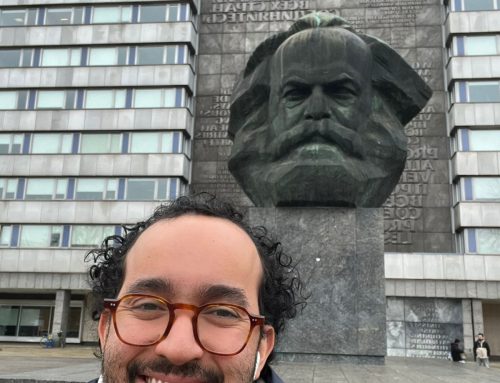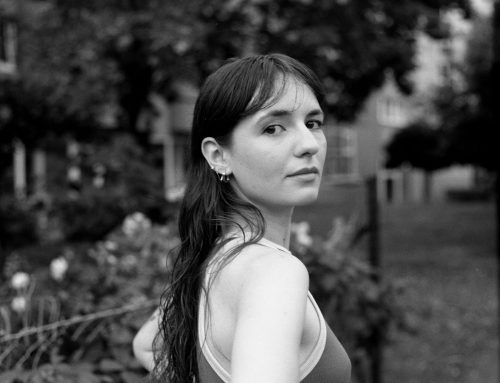CAS SEE Fellows Panel in Belgrade
Chair: Sanja Milutinović Bojanić (CAS SEE, Rijeka)
Aleksandra Djurasovic
Center for Advanced Studies in Southeastern Europe (CAS – SEE), University of Rijeka
“Oh, we could be together, if only the things weren’t so complicated”: Complexity Factor in the Late Post-Socialist Transition in Bosnia and Herzegovina
The paper analyzes planning processes in Bosnia and Herzegovina (BiH) in order to offer insights into newly-shaping planning systems in Southeastern Europe (SEE) during the late phase of post-socialist transition. The paper argues that:
- Societal complexity makes transition more complex and creates boundaries to democratic decision making.
- High level of complexity associated with a political and economic arrangement causes a new type of urban transformation reflecting the multi-faceted transitions (post-socialist, war-to-peace and neoliberal) and their ever evolving dynamics.
- Disrupted by war and peace-building processes in the aftermath of the political, social and economic change in Eastern Europe, BiH went through a different set of complexities, compared to other post-socialist regions.
The research takes complexity as a very pragmatic set of reasons why transition processes differ in different contexts. For that reason, this research will only discuss complexities related to BiH. There are many easily recognized and hidden complexities attached to the multifaceted transition processes in BiH, and the most visible ones are: Destruction, Social Division, Corruption, The ‘Rule of Law’, Motivational rather than revitalization reconstruction strategies and short-sighted planning, Donor Fatigue, and Unclear transition path and end point of transition. Through a thorough literature review and a series of semi-structured interviews the paper will show that due to these complexities, BiH moves slowly on its transition path and decision making systems are reduced to a vague set of fragmented development strategies more open for individual development approaches.
Giulia Carabelli
Center for Advanced Studies in Southeastern Europe (CAS – SEE), University of Rijeka
Affects That Bond and Disband: On the Production of Spaces for Being Together-with and -against in Bosnia Herzegovina During the 2014 Protests
In this paper, I will account critically for the waves of grassroots resistance that troubled the political stillness (stasis) of Bosnia Herzegovina in 2014. The main aim of this paper is to explore the ways in which protesters (as agents of change) come-together to form and maintain political movements able to shake consensus and to reclaim ‘the political’ (Rancière) beyond the singularity of the protest-event. This paper draws on the preliminary results of an ongoing research largely based on interviews with key organisers and participants in the 2014 protests in Sarajevo and Tuzla.
I will propose two entry points for the analysis of the protests. Firstly, I am interested in unravelling the production and articulation of these spaces of rebellion by considering their ‘affective atmospheres’ (Anderson, 2009). Drawing on recent debates in the social sciences that call for attention to be given to affects in the production of socio-spatial relations (Ahmed; Anderson; Berlant; Cooper), I propose to think with and through ‘anger’, ‘rage’, and ‘hope’ as means to understand how spaces where to be together-with and together-against were created, maintained or exhausted during the Bosnian protests.
Secondly, and drawing on Lefebvre’s understanding of heterotopias as those moments of disruption to the political order that hold the potential for radical change, I wish to discuss the 2014 protests as heterotopias in order to explore their potential and limits within the context of Bosnian politics. In particular, I wish to reflect on how the creation of these antagonist pockets of radical politics created spaces that seemed able to function only in absolute opposition to mainstream politics: How does to be ‘radical’ create and limit political participation? How does radicalism work as an affective agent that creates communities of belonging but also as a force that disband the protesters from existing political infrastructures? Is it possible to reconcile radicalism with radical political change?
Piro Rexhepi
Center for Advanced Studies in Southeastern Europe (CAS – SEE), University of Rijeka
After Ankara: Hierarchies of Togetherness and Humanitarian Violence
This paper is part theoretical reflections on the continued potency of togetherness to reconstitute assembly and action and part critique of international solidarities that appeal to humanitarian violence in the name of togetherness. I explore the taxonomies that inform ‘international’ notions of solidarity and the hierarchies of togetherness by asking if bodies assembled together in the margins must be bounded with the language of the center for their demands to be transposable across b/orders. In this context, I examine how local political claims traverse and labor with the grammar of global human rights assemblages that converge and conflate state violence with solidarity in light of Butler’s (2011) argument that “the local must be recast outside itself in order to be established as local.” Starting with a discussion on the recent “Call by Academics for International Solidarity after the Ankara Bombing” (2015), I examine how local political demands travel through, and recruit humanitarian violence, reconstituting European colonial markers of difference that continue to legitimize some forms of violence over others. Ricks (2012) question, “How can we be ethically opposed to some forms of violence while being in favor of others?” informs my questioning of universalist and universalizing appeals of togetherness that continue to be situated in international institutions facilitated by state/market powers.
Francesco Marone
Center for Advanced Studies in Southeastern Europe (CAS – SEE), University of Rijeka
The Body as a Weapon: The Logic of Self-Sacrifice in Suicide Bombing
Suicide terrorism has become one of the most important and emblematic forms of violence of our age, particularly since 11 September 2001. Suicide attacks represent acts of organised violence in which the perpetrators deliberately sacrifice their own life. The willingness to die is combined with the willingness to kill in the same act simultaneously: the goal is therefore “dying to kill” (Bloom 2005). Moreover, in suicide attacks the ‘martyr’’s death is a necessary requisite of the mission because it is self-inflicted, frequently by means of explosive devices (suicide bombings).
Despite recurrent references to the past and return to the ‘true’ fundamentals of religion (in particular, the traditional idea of martyrdom in Islam), genuine suicide bombing is a modern phenomenon, emerged only in the early 1980s during the Lebanese civil war.
In suicide bombings, the human body becomes a sort of “ultimate smart bomb”. Suicide bombing, used so often by groups that fear and reject the modern world, can be seen as “a quintessentially modern technology that pushes the disenchanting and de-sacralizing elements of the modern world to their limits” (Lewis 2012, p. 25). In a sense, the idea of martyrdom is translated into a reliable from of control technology.
My presentation discusses this approach to suicide bombing, from a social science perspective, with particular reference to the “local” case of the Palestinian armed groups and the “global” case of the al-Qaeda network.
Julija Sardelic
Center for Advanced Studies in Southeastern Europe (CAS – SEE), University of Rijeka
Acts of Citizenship from the Margins: Romani Minorities and Social Movements in Southeastern Europe
Romani minorities are considered to be one of the most marginalized and excluded populations in Southeastern Europe. The position of Roma has been highlighted by many scholars, who argued that they are not only passive observers, but do engage as activist citizens especially to challenge the existing orders of discriminatory practices towards them. However, most of the previous studies highlighted only how Romani activists engage in protest movements, which address inequalities arising due to stigmatization of their own ‘ethnic identity’ and can be thus considered similar to civil rights movement by US African-Americans. In my research, I aim to dispute the claim that Romani activism can be narrowed down to identity politics formulating two main hypotheses. Firstly, due to its hybrid and heterogeneous nature Romani movement does not revolve only around the question of ethnicity, but more Intersectional issues that concern all citizens. More importantly, on the basis of interviews with several Romani activists from the post-Yugoslav space, I argue that they also participate in recent protests that go beyond ethnic lines. I claim that these protest namely form a new platform of ‘togetherness’, where Romani activists are not marginalized and discriminated, but are in fact included as equals.
Vera Tripodi
Center for Advanced Studies in Southeastern Europe (CAS – SEE), University of Rijeka
The Role of the Body in Politics, Epistemic Injustice, and Prejudice
In Notes Towards a Performative Theory of Assembly (2015), Judith Butler extends her concept of performativity to public assemblies. More specifically, she argues that public assemblies can be understood as embodied ways of coming together and explained in terms of plural forms of performative action. Also, rights of assembly imply – Butler underlines – the body, understood properly, in a collective and embodied sets of acts. According to this view, in taking to the streets to protest or assert certain kind of demands or to object to certain social conditions, people embody their resistance and their right to be heard.
But, how is it that we embody the right to be heard? How is it that we constitute or fail to constitute ourselves as “we the people”? In my talk, I attempt to explore the link between Butler’s recent view about assemblies of physical bodies and the phenomenon of epistemic injustice in the sense articulated by Miranda Fricker (Epistemic injustice. Power and the ethics of knowing, 2007). The talk will be focusing on a particular aspect of public assemblies. By addressing the role of the body in politics in terms of epistemic injustice and unconscious bias, my aim is to show that the embodied ways of coming together are also related to mechanisms (sometimes unconscious) that make us to recognize or fail to recognize a group of people as trustworthy holder of knowledge or authority. Here is a more detailed layout of my argument.
The question of the role of the body in politics seems to be connected, I argue, to the issue of unconscious bias because epistemic injustice often results from prejudices or stereotypes. According to Fricker, the epistemic injustice is testimonial when our credibility is downgraded (by prejudice, gender or race); and hermeneutical when, in trying to make sense of our social experiences, we are left at an unfair disadvantage by a void in the interpretative resources available in our community. This not only causes social or political harm, but also produces a form of epistemic harm and disadvantage. Fricker specifies that hermeneutical epistemic injustice is caused by a gap in collective interpretive resources of a community; for example, when a community cannot recognize a wrong suffered by its members because it does not have the means of interpretation to understand or see something as unfair. My conclusion is that to address the role of the body in politics means to address epistemic injustice, namely the issues of how social identity affects the way (consciously or unconsciously) we operate in social practice and we establish our credibility or come (or fail to come) to exercise authority.
Jeremy F. Walton
Center for Advanced Studies in Southeastern Europe (CAS – SEE), University of Rijeka
Merely Political: Agonistic Rhetorics of Unity and Anxieties of Proximity in Ankara
In 1997, at a moment of heightened sensitivity over the relationship between Marxist/materialist and culturalist perspectives in critical scholarship and among the Left more broadly, Judith Butler posed an incisive rhetorical question: “Is the point of the new rhetorics of unity not simply to ‘include’ through domestication and subordination precisely those movements that formed in part in opposition to such domestication and subordination?” (1997: 268). My brief presentation revisits this question in reference to an ethnographic context in which the “rhetoric of unity” is a powerful means of suppressing dissent. In Turkey’s capital of Ankara, an ongoing project, sponsored by a consortium of civil society organizations, aims to construct a shared space of worship for Sunni and Alevi Muslims, a so-called “mosque-cem house.” Proponents of the project have articulated a powerful rhetoric of unity and tolerance, thereby depoliticizing the fraught history of violence that partially defines the minority Alevi community in relation to majority Sunnis. Conversely, Alevi opponents of the project have condemned it as a means of subordination and assimilation. Provocatively, backers and opponents of the mosque-cem house have both dismissed each other as engaging in “mere” politics; according to the logic of this dismissal, “politics” is understood as a figure of instrumental power that is necessarily opposed to the authentic, ostensibly apolitical domain of communal religion and culture. Nearly two decades on from Butler’s signature argument in “Merely Cultural,” the binaries of material/cultural and political/cultural continue to structure analyses of myriad contexts of violence, subordination, discrimination, and dispossession. Ankara’s mosque-cem house controversy exemplifies the entrenched nature of these distinctions. Two related questions immediately arise: How might politically acute scholarship unravel these robust dichotomies? and, conversely, How can scholarship that seeks to break the manacles of such binary categories also acknowledge the claims of informants and interlocutors that are rooted in these very binaries?








